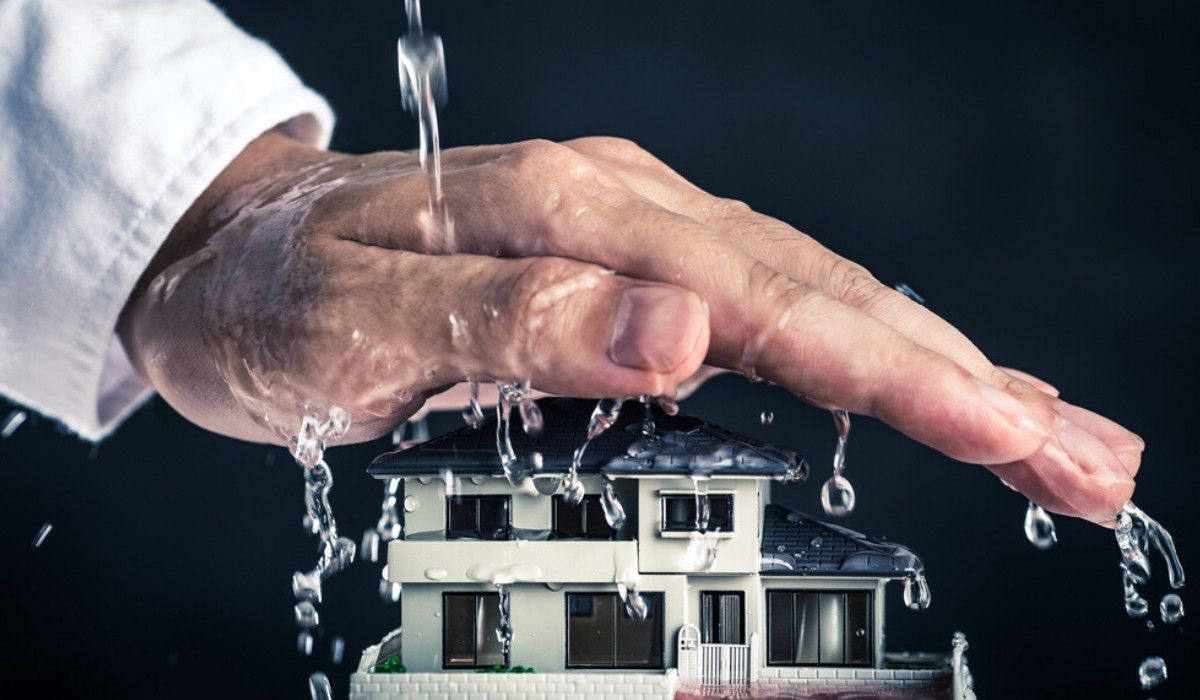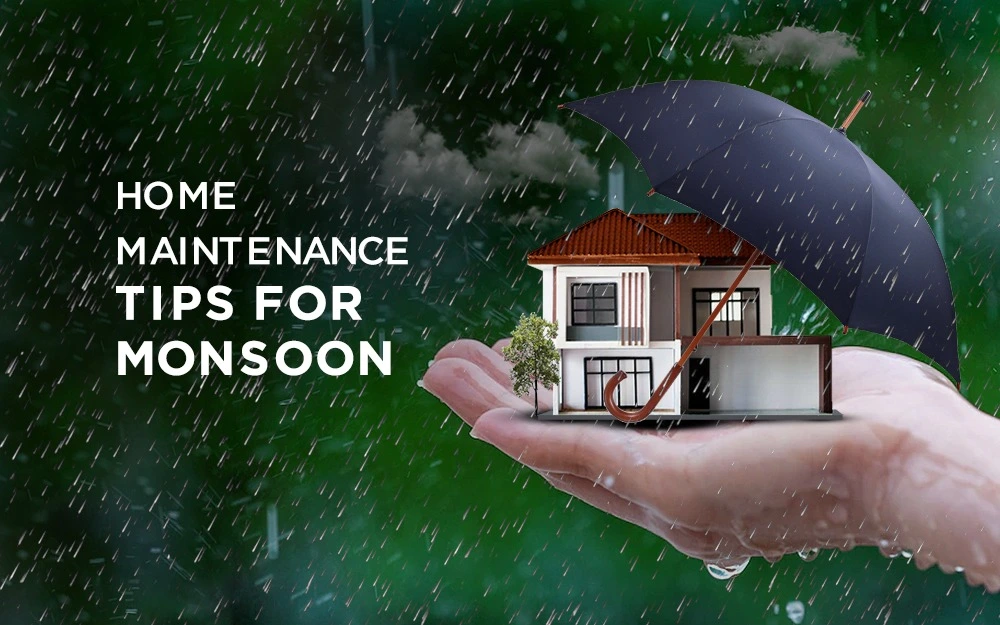Table of Content
▲
We all eagerly await the monsoon each year for its much-needed relief from the scorching heat of tropical summers. While the monsoon brings cozy moments with chai and snacks, it also brings its own set of challenges. Issues like dampness, seepage, and waterlogging are common during this season. To fully enjoy the rains, it's essential to prepare your home effectively. This article explores practical maintenance tips to ensure your home is monsoon-ready.
Roof Inspection and Repair
Inspect your roof for signs of damage such as cracked, missing, or loose shingles that could lead to leaks. Keep gutters and downspouts clear of debris to ensure proper water flow and prevent water accumulation. Seal any gaps or cracks with waterproof sealants promptly to maintain the integrity of your roof.
Exterior Maintenance
Protect your home's exterior walls from cracks that may allow water ingress due to external elements. Seal any gaps securely and consider applying waterproof paint for added protection. Regularly check for mold and mildew, especially in damp-prone areas, and treat affected areas promptly.

Window and Door Inspection
Ensure that windows and doors are properly sealed to prevent rainwater from seeping in through corners and edges. Replace damaged seals as needed and consider installing storm shutters for additional protection during heavy storms. Apply weather stripping to enhance the sealing of doors and windows against water infiltration.
Drainage System Maintenance
Inspect and clear all drainage systems around your home to ensure they are functioning properly and free of obstructions. Ensure proper slope away from the foundation to direct water away from the home and prevent water accumulation. Consider installing a sump pump in basements to manage excess water effectively.
Also Read: A list of the 7 most inviting exterior paint colors.
Electrical System Check
Have a professional inspect your home's electrical system for any vulnerabilities that could pose safety risks during rainy weather. Protect electrical appliances from power surges with surge protectors and consider elevating them to prevent potential flood damage.
Interior Preparations
Store important documents and valuables in waterproof containers placed in elevated areas to keep them safe from water damage. Regularly inspect ceilings, walls, and floors for signs of leaks and address any issues promptly. Use dehumidifiers in humid areas to reduce moisture levels and prevent mold growth.
Garden and Yard Maintenance
Trim overhanging branches to prevent damage to your home during storms. Secure outdoor items such as furniture and potted plants to prevent them from being blown away. Keep garden drainage systems clear to prevent waterlogging and potential damage to outdoor areas.
Emergency Preparedness
Prepare an emergency first aid kit and keep it easily accessible and well-stocked at all times. Maintain a list of emergency contacts and ensure they are readily available. Stock up on essential supplies like food, water, batteries, flashlights, and medications to be prepared for any emergency situations.
Basement and Crawl Space Maintenance
Waterproof basements and crawl spaces to prevent water intrusion. Install French drains around the perimeter to redirect water away from the foundation. Regularly inspect these areas for dampness and seepage, taking immediate action if any issues are detected.
Pest Control
Seal potential entry points to prevent pests from entering your home during rainy periods. Conduct regular inspections to identify and address pest infestations promptly using appropriate pest control methods.
These measures will help you prepare your home effectively for the monsoon season, ensuring a comfortable and safe living environment despite the challenges posed by heavy rains.
Also Read: Roofing upgrades 2024: Materials and techniques for a longer-lasting roof.









_1771582392.webp)
_1771577585.webp)
Ans 1. Make sure there are no moisture pockets in the house. A dehumidifier is the best way to reduce moisture in a space. Keep the windows open for ventilation, which will also reduce stuffy smells. Using natural scents while cleaning the floors will also leave behind a nice fragrance in the home.
Ans 2. Things to Fix Electric Connections. Electric switches and wires must be secured from getting wet. Make sure to get loose wires, damaged switches, and other faults fixed. ... Leakages. Figure out the exact problem, and then fix it. ... Drains and Pipes. Check for blockages everywhere. ... Doors and Windows.
Ans 3. Therefore, it's a good idea to open your windows and doors once in a while to let in the cool monsoon breeze to flush out the stale smell. You can also use air fresheners, aerosols, scented candles and floor cleaners to freshen up the air inside.
Ans 4. Wear clean, dry, loose clothes with breathable fabric (e.g. cotton). Avoid tight clothes, jeans, wet or damp clothes. Shower and shampoo your hair regularly. Avoid sharing personal items like clothing or hairbrushes with people who might have ringworm.
Ans 5. Use Baking Soda or Vinegar Along with Washing Detergent : Soaking clothes in baking soda works as a deodorizer. Besides helping remove odors from the clothes, it also naturally softens them. Adding just about ½ cup to your laundry's rinse cycle will help remove musty smell from them.